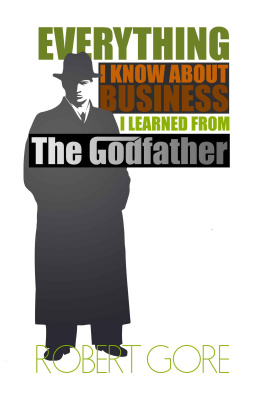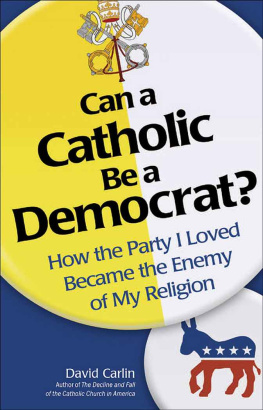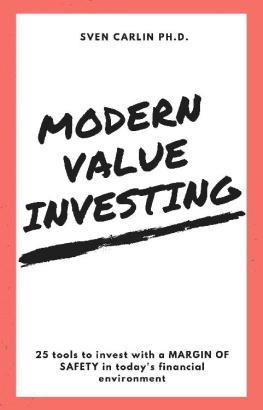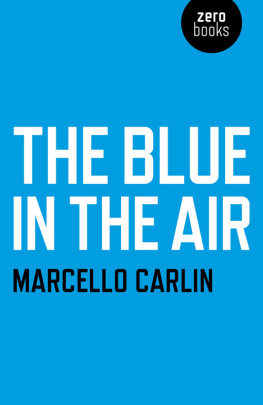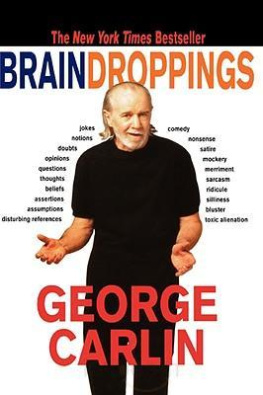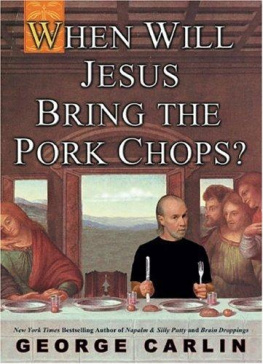Richard Carlin - Godfather of the Music Business
Here you can read online Richard Carlin - Godfather of the Music Business full text of the book (entire story) in english for free. Download pdf and epub, get meaning, cover and reviews about this ebook. year: 2016, publisher: University Press of Mississippi, genre: Detective and thriller. Description of the work, (preface) as well as reviews are available. Best literature library LitArk.com created for fans of good reading and offers a wide selection of genres:
Romance novel
Science fiction
Adventure
Detective
Science
History
Home and family
Prose
Art
Politics
Computer
Non-fiction
Religion
Business
Children
Humor
Choose a favorite category and find really read worthwhile books. Enjoy immersion in the world of imagination, feel the emotions of the characters or learn something new for yourself, make an fascinating discovery.

- Book:Godfather of the Music Business
- Author:
- Publisher:University Press of Mississippi
- Genre:
- Year:2016
- Rating:5 / 5
- Favourites:Add to favourites
- Your mark:
- 100
- 1
- 2
- 3
- 4
- 5
Godfather of the Music Business: summary, description and annotation
We offer to read an annotation, description, summary or preface (depends on what the author of the book "Godfather of the Music Business" wrote himself). If you haven't found the necessary information about the book — write in the comments, we will try to find it.
Godfather of the Music Business — read online for free the complete book (whole text) full work
Below is the text of the book, divided by pages. System saving the place of the last page read, allows you to conveniently read the book "Godfather of the Music Business" online for free, without having to search again every time where you left off. Put a bookmark, and you can go to the page where you finished reading at any time.
Font size:
Interval:
Bookmark:
Like many others, I was exposed to the incredible story of Morris Levy through the writings of Fredric Dannen, first in an interview feature in Rolling Stone, and later as part of his seminal book, Hit Men. Dannen was among the first to make a compelling case for how the music industry took advantage of artists, with Levy serving as an inspiration for many of its darkest practices. Reporter William Knoedelseder, who covered the trial that ultimately saw Levys downfall in the mid-eighties, is the second key source on Levys operations. In a series of articles in the Los Angeles Times, Knoedelseder traced a complex web surrounding an ill-fated sale of remaindered records by MCA that involved Levy and his cohorts. This was expanded in his important book, Stiffed, one of several studies of MCAs ties with the Mob.
Several writers and friends have been key in helping me understand the story of Morris Levy. John Broven, the author of Record Makers and Breakers among other important works, has been very helpful, providing leads and other material, along with memories of his interviews with industry insiders like Hymie Weiss. Stan Soocher, author of They Fought the Law, graciously provided introductions to several in the legal and music business communities who I was subsequently able to interview. Tim Riley gave me an introduction to Richard Foos of Rhino Records, who generously told me about his negotiations to purchase Roulette Records from Levy. Foos in turn introduced me to his partner at Rhino, Harold Bronson, and Bob Emmer, who conducted the negotiations for Rhino to purchase Roulette. Both were extremely helpful in reading the manuscript and offering suggestions for further leads. Aurin Primack, son of Morris Primack, one of the original investors in Birdland, shared generously his time as well as two video interviews that were conducted with his father during the 1990s that provided fresh information about the club and its operations. Chuck Rubin gave a lengthy and revealing interview about his entire career and his many tangles with Morris Levy over artist rights. Brad Fisher spoke to me at length about his father, Howard Fisher, and his role at Roulette, along with his own impressions of Morris Levy and various others who worked at the label. Brads mother, Marilyn, and his sister, Gail, were also very helpful in commenting on the manuscript. The family also provided some photos for use in the book.
Joel Selvin kindly provided unpublished interview materials that he conducted with industry insiders along with two revealing unpublished interviews with Morris Levy in his possession. He offered good advice on how I could approach the story, for which I am very grateful. Bud Powell biographer Peter Pullman directed me to Aurin Primack and offered a candid assessment of Levys and Oscar Goodsteins roles in Powells career. Michael Zager told wonderful stories about the disco-crazed seventies and his production work for Roulette. Attorneys Paul Walker and Ira Greenberg gave me insights into the music publishing business; Greenberg was particularly helpful on details of the Why Do Fools Fall in Love? litigation.
Jazz bassist Bill Crow shared his memories of Birdland and the jazz world of the fifties. Retired record distributor George Hocutt explained how the record distribution business worked and shared his memories of dealing with Levy in the seventies and eighties. Photographer Chuck Stewart spoke of the early days of Roulette and generously provided a photo of Duke Ellington at Birdland for this book. Neil Sedaka gave insights into the Jewish social culture of the 1950s, including the mambo craze, and his own dealings with Levy. Rupert Surcouf, ex-manager of the Meters, shared a story regarding Levys bootlegging activities. Ted Hershorn helped me navigate the Rutgers University Jazz Archives and also provided information on Norman Granz. The Brigati brothers, Eddie and David, provided pithy commentary on their association with Levy. Dick Hyman shared his memories of playing at Birdland. Showing that Levy remains a controversial character to today, some others spoke to me under the condition of anonymity.
Among those who provided editorial guidance and advice, I am particularly indebted to Dick Weissman, who read an early version of the manuscript and provided helpful comments. Dick kept an eagle eye out for stray tidbits about Levy, directing me to the memoirs of performers like Nile Rodgers, which I might not have found on my own. Larry Sandberg similarly provided a critical reading that helped me focus the text. Ed Berger provided information related to his interviews with Teddy Reig in preparation for Reigs autobiography. Bob Porter provided contact information for several of the individuals who I was able to interview for this text. Marcie Werner aided in my attaining access to Levys trial transcripts and related materials. Kenneth Kimery at the Smithsonian American History Museums archives pointed me toward relevant interviews with jazz performers. Salvatore Gigante kindly provided a photo of his uncle for use in this text. Thanks to Craig Gill at the University Press of Mississippi for his faith in this project and support as I was working on the manuscript.
Many offered guidance in how to evaluate the memories of different informants, who often gave conflicting accounts of the same events; I am particularly indebted to Jim Elkins, Joel Selvin, John Edward Hasse, Ken Bloom, Ben Bierman, Atesh Sonneborn, Thom Holmes, Albin Zak, my brother Bob Carlin, and others who have conducted aural histories and grappled with this question. My wife Jessica Myers conducted genealogical research and provided much-needed encouragement and support, tirelessly listening over five years to anecdotes about Morris Levy and the music business.
I was smart, I was hard-working, and I was a tough kid.
Morris Levy
Morris Levy was born to a working-class Jewish family in New York Citys Harlem on August 27, 1927. His father, Simon Levy, was originally from Greece and immigrated to the United States in 1912; he was preceded by a brother, Morris, who came in 1909 and settled in Brooklyn. A son named Zachariah (named for Simons father, he was later known as Irving) was born on December 3, 1922, followed by another child (who died before Morriss birth), and finally by Morris five years later. However, tragedy struck soon after when Simon died of pneumonia in 1928, a disease that regularly ravaged the slums of New York in the early twentieth century. Simons brother Morris had four children himself, so he may not have been able to offer any aid to Rachel or her family.
Following Simons death, the family moved to the Bronx. According to Morris, his mother was ill-equipped to support him and his brother; Zachariah was temporarily placed in an orphanage while Rachel Levy struggled to cope.
Like many other immigrant families during the Depression years, the Levys were driven onto relief, a source of embarrassment to the young man. When we got the [welfare] check on the first of the month, he boasted years later, I used to mail it back to the state, or the city, or whoever the fuck it was.
When Levy hit adolescence, he had already achieved a formidable physique: he was tall (nearly six feet) and muscular. Levy managed to stay in school through at least junior high school. However, the tipping point for him came when he experienced what he considered to be a grave injustice. Although he did well on a math test, the teacher required the entire classmost of whom had failed the examto spend their homeroom time doing extra math work. Still bitter decades later, Levy said this teacher had no business teaching school. [She]... must have been seventy-five years old, never got fucked in her life. After she demanded that all be punished because of the poor performance of a few, Levy challenged her, asking, What about those who
Font size:
Interval:
Bookmark:
Similar books «Godfather of the Music Business»
Look at similar books to Godfather of the Music Business. We have selected literature similar in name and meaning in the hope of providing readers with more options to find new, interesting, not yet read works.
Discussion, reviews of the book Godfather of the Music Business and just readers' own opinions. Leave your comments, write what you think about the work, its meaning or the main characters. Specify what exactly you liked and what you didn't like, and why you think so.



